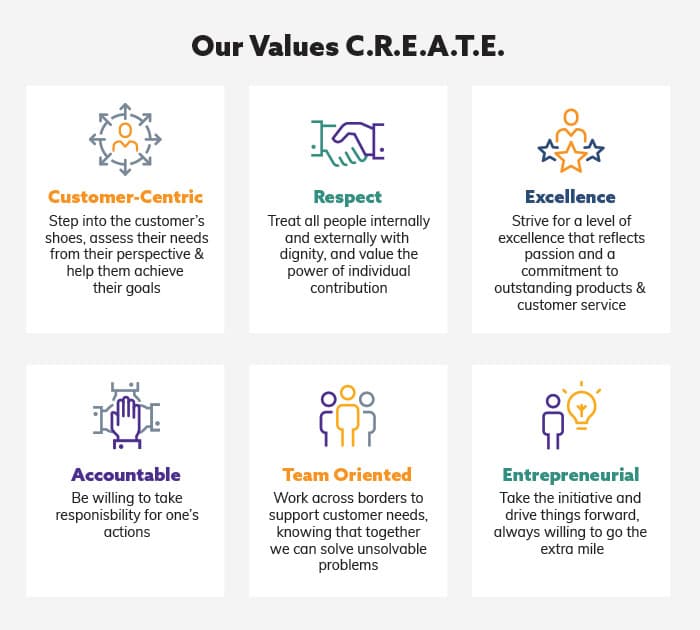
Job Location: Jaipur
Experience Required: Minimum 3 years
About the role:
As a DevOps Engineer for Punchh, you will be working with our developers, SRE, and DevOps teams implementing our next generation infrastructure. We are looking for a self-motivated, responsible, team player who love designing systems that scale. Punchh provides a rich engineering environment where you can be creative, learn new technologies, solve engineering problems, all while delivering business objectives. The DevOps culture here is one with immense trust and responsibility. You will be given the opportunity to make an impact as there are no silos here.
Responsibilities:
- Deliver SLA and business objectives through whole lifecycle design of services through inception to implementation.
- Ensuring availability, performance, security, and scalability of AWS production systems
- Scale our systems and services through continuous integration, infrastructure as code, and gradual refactoring in an agile environment.
- Maintain services once a project is live by monitoring and measuring availability, latency, and overall system and application health.
- Write and maintain software that runs the infrastructure that powers the Loyalty and Data platform for some of the world’s largest brands.
- 24x7 in shifts on call for Level 2 and higher escalations
- Respond to incidents and write blameless RCA’s/postmortems
- Implement and practice proper security controls and processes
- Providing recommendations for architecture and process improvements.
- Definition and deployment of systems for metrics, logging, and monitoring on platform.
Must have:
- Minimum 3 Years of Experience in DevOps.
- BS degree in Computer Science, Mathematics, Engineering, or equivalent practical experience.
- Strong inter-personal skills.
- Must have experience in CI/CD tooling such as Jenkins, CircleCI, TravisCI
- Must have experience in Docker, Kubernetes, Amazon ECS or Mesos
- Experience in code development in at least one high-level programming language fromthis list: python, ruby, golang, groovy
- Proficient in shell scripting, and most importantly, know when to stop scripting and start developing.
- Experience in creation of highly automated infrastructures with any Configuration Management tools like: Terraform, Cloudformation or Ansible.
- In-depth knowledge of the Linux operating system and administration.
- Production experience with a major cloud provider such Amazon AWS.
- Knowledge of web server technologies such as Nginx or Apache.
- Knowledge of Redis, Memcache, or one of the many in-memory data stores.
- Experience with various load balancing technologies such as Amazon ALB/ELB, HA Proxy, F5.
- Comfortable with large-scale, highly-available distributed systems.
Good to have:
- Understanding of Web Standards (REST, SOAP APIs, OWASP, HTTP, TLS)
- Production experience with Hashicorp products such as Vault or Consul
- Expertise in designing, analyzing troubleshooting large-scale distributed systems.
- Experience in an PCI environment
- Experience with Big Data distributions from Cloudera, MapR, or Hortonworks
- Experience maintaining and scaling database applications
- Knowledge of fundamental systems engineering principles such as CAP Theorem, Concurrency Control, etc.
- Understanding of the network fundamentals: OSI, TCI/IP, topologies, etc.
- Understanding of Auditing of Infrastructure and help org. to control Infrastructure costs.
- Experience in Kafka, RabbitMQ or any messaging bus.

Similar jobs
About MyOperator
MyOperator is a Business AI Operator, a category leader that unifies WhatsApp, Calls, and AI-powered chat & voice bots into one intelligent business communication platform. Unlike fragmented communication tools, MyOperator combines automation, intelligence, and workflow integration to help businesses run WhatsApp campaigns, manage calls, deploy AI chatbots, and track performance — all from a single, no-code platform. Trusted by 12,000+ brands including Amazon, Domino's, Apollo, and Razorpay, MyOperator enables faster responses, higher resolution rates, and scalable customer engagement — without fragmented tools or increased headcount.
Job Summary
We are looking for a skilled and motivated DevOps Engineer with 3+ years of hands-on experience in AWS cloud infrastructure, CI/CD automation, and Kubernetes-based deployments. The ideal candidate will have strong expertise in Infrastructure as Code, containerization, monitoring, and automation, and will play a key role in ensuring high availability, scalability, and security of production systems.
Key Responsibilities
- Design, deploy, manage, and maintain AWS cloud infrastructure, including EC2, RDS, OpenSearch, VPC, S3, ALB, API Gateway, Lambda, SNS, and SQS.
- Build, manage, and operate Kubernetes (EKS) clusters and containerized workloads.
- Containerize applications using Docker and manage deployments with Helm charts
- Develop and maintain CI/CD pipelines using Jenkins for automated build and deployment processes
- Provision and manage infrastructure using Terraform (Infrastructure as Code)
- Implement and manage monitoring, logging, and alerting solutions using Prometheus and Grafana
- Write and maintain Python scripts for automation, monitoring, and operational tasks
- Ensure high availability, scalability, performance, and cost optimization of cloud resources
- Implement and follow security best practices across AWS and Kubernetes environments
- Troubleshoot production issues, perform root cause analysis, and support incident resolution
- Collaborate closely with development and QA teams to streamline deployment and release processes
Required Skills & Qualifications
- 3+ years of hands-on experience as a DevOps Engineer or Cloud Engineer.
- Strong experience with AWS services, including:
- EC2, RDS, OpenSearch, VPC, S3
- Application Load Balancer (ALB), API Gateway, Lambda
- SNS and SQS.
- Hands-on experience with AWS EKS (Kubernetes)
- Strong knowledge of Docker and Helm charts
- Experience with Terraform for infrastructure provisioning and management
- Solid experience building and managing CI/CD pipelines using Jenkins
- Practical experience with Prometheus and Grafana for monitoring and alerting
- Proficiency in Python scripting for automation and operational tasks
- Good understanding of Linux systems, networking concepts, and cloud security
- Strong problem-solving and troubleshooting skills
Good to Have (Preferred Skills)
- Exposure to GitOps practices
- Experience managing multi-environment setups (Dev, QA, UAT, Production)
- Knowledge of cloud cost optimization techniques
- Understanding of Kubernetes security best practices
- Experience with log aggregation tools (e.g., ELK/OpenSearch stack)
Language Preference
- Fluency in English is mandatory.
- Fluency in Hindi is preferred.
Overview
adesso India specialises in optimization of core business processes for organizations. Our focus is on providing state-of-the-art solutions that streamline operations and elevate productivity to new heights.
Comprised of a team of industry experts and experienced technology professionals, we ensure that our software development and implementations are reliable, robust, and seamlessly integrated with the latest technologies. By leveraging our extensive knowledge and skills, we empower businesses to achieve their objectives efficiently and effectively.
Job Description
The client’s department DPS, Digital People Solutions, offers a sophisticated portfolio of IT applications, providing a strong foundation for professional and efficient People & Organization (P&O) and Business Management, both globally and locally, for a well-known German company listed on the DAX-40 index, which includes the 40 largest and most liquid companies on the Frankfurt Stock Exchange
We are seeking talented DevOps-Engineers with focus on Elastic Stack (ELK) to join our dynamic DPS team. In this role, you will be responsible for refining and advising on the further development of an existing monitoring solution based on the Elastic Stack (ELK). You will independently handle tasks related to architecture, setup, technical migration, and documentation.
The current application landscape features multiple Java web services running on JEE application servers, primarily hosted on AWS, and integrated with various systems such as SAP, other services, and external partners. DPS is committed to delivering the best digital work experience for the customers employees and customers alike.
Responsibilities:
Install, set up, and automate rollouts using Ansible/CloudFormation for all stages (Dev, QA, Prod) in the AWS Cloud for components such as Elastic Search, Kibana, Metric beats, APM server, APM agents, and interface configuration.
Create and develop regular "Default Dashboards" for visualizing metrics from various sources like Apache Webserver, application servers and databases.
Improve and fix bugs in installation and automation routines.
Monitor CPU usage, security findings, and AWS alerts.
Develop and extend "Default Alerting" for issues like OOM errors, datasource issues, and LDAP errors.
Monitor storage space and create concepts for expanding the Elastic landscape in AWS Cloud and Elastic Cloud Enterprise (ECE).
Implement machine learning, uptime monitoring including SLA, JIRA integration, security analysis, anomaly detection, and other useful ELK Stack features.
Integrate data from AWS CloudWatch.
Document all relevant information and train involved personnel in the used technologies.
Requirements:
Experience with Elastic Stack (ELK) components and related technologies.
Proficiency in automation tools like Ansible and CloudFormation.
Strong knowledge of AWS Cloud services.
Experience in creating and managing dashboards and alerts.
Familiarity with IAM roles and rights management.
Ability to document processes and train team members.
Excellent problem-solving skills and attention to detail.
Skills & Requirements
Elastic Stack (ELK), Elasticsearch, Kibana, Logstash, Beats, APM, Ansible, CloudFormation, AWS Cloud, AWS CloudWatch, IAM roles, AWS security, Automation, Monitoring, Dashboard creation, Alerting, Anomaly detection, Machine learning integration, Uptime monitoring, JIRA integration, Apache Webserver, JEE application servers, SAP integration, Database monitoring, Troubleshooting, Performance optimization, Documentation, Training, Problem-solving, Security analysis.
Interested candidates are requested to email their resumes with the subject line "Application for [Job Title]".
Only applications received via email will be reviewed. Applications through other channels will not be considered.
Job Description
The client’s department DPS, Digital People Solutions, offers a sophisticated portfolio of IT applications, providing a strong foundation for professional and efficient People & Organization (P&O) and Business Management, both globally and locally, for a well-known German company listed on the DAX-40 index, which includes the 40 largest and most liquid companies on the Frankfurt Stock Exchange
We are seeking talented DevOps-Engineers with focus on Elastic Stack (ELK) to join our dynamic DPS team. In this role, you will be responsible for refining and advising on the further development of an existing monitoring solution based on the Elastic Stack (ELK). You will independently handle tasks related to architecture, setup, technical migration, and documentation.
The current application landscape features multiple Java web services running on JEE application servers, primarily hosted on AWS, and integrated with various systems such as SAP, other services, and external partners. DPS is committed to delivering the best digital work experience for the customers employees and customers alike.
Responsibilities:
Install, set up, and automate rollouts using Ansible/CloudFormation for all stages (Dev, QA, Prod) in the AWS Cloud for components such as Elastic Search, Kibana, Metric beats, APM server, APM agents, and interface configuration.
Create and develop regular "Default Dashboards" for visualizing metrics from various sources like Apache Webserver, application servers and databases.
Improve and fix bugs in installation and automation routines.
Monitor CPU usage, security findings, and AWS alerts.
Develop and extend "Default Alerting" for issues like OOM errors, datasource issues, and LDAP errors.
Monitor storage space and create concepts for expanding the Elastic landscape in AWS Cloud and Elastic Cloud Enterprise (ECE).
Implement machine learning, uptime monitoring including SLA, JIRA integration, security analysis, anomaly detection, and other useful ELK Stack features.
Integrate data from AWS CloudWatch.
Document all relevant information and train involved personnel in the used technologies.
Requirements:
Experience with Elastic Stack (ELK) components and related technologies.
Proficiency in automation tools like Ansible and CloudFormation.
Strong knowledge of AWS Cloud services.
Experience in creating and managing dashboards and alerts.
Familiarity with IAM roles and rights management.
Ability to document processes and train team members.
Excellent problem-solving skills and attention to detail.
Skills & Requirements
Elastic Stack (ELK), Elasticsearch, Kibana, Logstash, Beats, APM, Ansible, CloudFormation, AWS Cloud, AWS CloudWatch, IAM roles, AWS security, Automation, Monitoring, Dashboard creation, Alerting, Anomaly detection, Machine learning integration, Uptime monitoring, JIRA integration, Apache Webserver, JEE application servers, SAP integration, Database monitoring, Troubleshooting, Performance optimization, Documentation, Training, Problem-solving, Security analysis.
We are an on-demand E-commerce technology and Services Company and a tech-enabled 3PL (third party logistics). We unlocks ecommerce for companies by managing the entire operations lifecycle:
Sell, Fulfil & Reconcile.
Using us, companies can: -
• Store their inventory in our fulfilment centers (FCs)
• Sell their products on multiple sales channels (online marketplaces like Amazon, Flipkart, and their own website)
• Get their orders processed within a defined SLA
• Reconcile payments against the sales company combines infrastructure and dedicated experts to give brands: accountability, peace of mind, and control over the ecommerce journey.
The company is working on a remarkable concept for running an E-commerce business- starting from establishing an online presence for many enterprises. It offers a combination of products and services to create a comprehensive platform and manage all aspects of running a brand online, including the development of an exclusive web store, handling logistics, integrating all marketplaces and so on.
Who are we looking for?
We are looking for a skilled and passionate DevOps Engineer to join our Centre of Excellence to build and scale effective software solutions for our Ecommerce Domain.
Wondering what your Responsibilities would be?
• Building and setting up new development tools and infrastructure
• Provide full support to the software development teams to deploy, run and roll out new services and new capabilities in Cloud infrastructure
• Implement CI/CD and DevOps best practices for software application teams and assist in executing the integration and operation processes
• Build proactive monitoring and alerting infrastructure services to support operations and system health
• Be hands-on in developing prototypes and conducting Proof of Concepts
• Work in an agile, collaborative environment, partnering with other engineers to bring new solutions to the table
• Join the DevOps Chapter where you’ll have the opportunity to investigate and share information about technologies within the DevOps Engineering Community
What Makes you Eligible?
• Bachelor’s Degree or higher in Computer Science or Software Engineering with appropriate experience
• Minimum of 1 year of proven experience as DevOps Engineer
• Experience in working with a DevOps culture, following Agile Software Development methodologies of Scrum
• Proven experience in source code management tools like Bitbucket and Git
• Solid experience in CI/CD pipelines like Jenkins
• Shown ability with configuration management tools (e.g., Terraform, Ansible, Docker and Kubernetes) and repository tools like Artifactory
• Experience in Cloud architecture & provisioning
• Knowledge in Programming / Querying NoSQL databases
• Teamwork skills with a problem-solving attitude
We are looking for an experienced Sr.Devops Consultant Engineer to join our team. The ideal candidate should have at least 5+ years of experience.
We are retained by a promising startup located in Silicon valley backed by Fortune 50 firm with veterans from firms as Zscaler, Salesforce & Oracle. Founding team has been part of three unicorns and two successful IPO’s in the past and well funded by Dell Technologies and Westwave Capital. The company has been widely recognized as an industry innovator in the Data Privacy, Security space and being built by proven Cybersecurity executives who have successfully built and scaled high growth Security companies and built Privacy programs as executives.
Responsibilities:
- Develop and maintain infrastructure as code using tools like Terraform, CloudFormation, and Ansible
- Manage and maintain Kubernetes clusters on EKS and EC2 instances
- Implement and maintain automated CI/CD pipelines for microservices
- Optimize AWS costs by identifying cost-saving opportunities and implementing cost-effective solutions
- Implement best security practices for microservices, including vulnerability assessments, SOC2 compliance, and network security
- Monitor the performance and availability of our cloud infrastructure using observability tools such as Prometheus, Grafana, and Elasticsearch
- Implement backup and disaster recovery solutions for our microservices and databases
- Stay up to date with the latest AWS services and technologies and provide recommendations for improving our cloud infrastructure
- Collaborate with cross-functional teams, including developers, and product managers, to ensure the smooth operation of our cloud infrastructure
- Experience with large scale system design and scaling services is highly desirable
Requirements:
- Bachelor's degree in Computer Science, Engineering, or a related field
- At least 5 years of experience in AWS DevOps and infrastructure engineering
- Expertise in Kubernetes management, Docker, EKS, EC2, Queues, Python Threads, Celery Optimization, Load balancers, AWS cost optimizations, Elasticsearch, Container management, and observability best practices
- Experience with SOC2 compliance and vulnerability assessment best practices for microservices
- Familiarity with AWS services such as S3, RDS, Lambda, and CloudFront
- Strong scripting skills in languages like Python, Bash, and Go
- Excellent communication skills and the ability to work in a collaborative team environment
- Experience with agile development methodologies and DevOps practices
- AWS certification (e.g. AWS Certified DevOps Engineer, AWS Certified Solutions Architect) is a plus.
Notice period : Can join within a month
Striim (pronounced “stream” with two i’s for integration and intelligence) was founded in 2012 with a simple goal of helping companies make data useful the instant it’s born.
Striim’s enterprise-grade, streaming integration with intelligence platform makes it easy to build continuous, streaming data pipelines – including change data capture (CDC) – to power real-time cloud integration, log correlation, edge processing, and streaming analytics
2 - 5 Years of Experience in any Programming any language (Polyglot Preferred ) & System Operations • Awareness of Devops & Agile Methodologies • Proficient in leveraging CI and CD tools to automate testing and deployment . • Experience in working in an agile and fast paced environment . • Hands on knowledge of at least one cloud platform (AWS / GCP / Azure). • Cloud networking knowledge: should understand VPC, NATs, and routers. • Contributions to open source is a plus. • Good written communication skills are a must. Contributions to technical blogs / whitepapers will be an added advantage.
Requirements
You will make an ideal candidate if you have:
-
Experience of building a range of Services in a Cloud Service provider
-
Expert understanding of DevOps principles and Infrastructure as a Code concepts and techniques
-
Strong understanding of CI/CD tools (Jenkins, Ansible, GitHub)
-
Managed an infrastructure that involved 50+ hosts/network
-
3+ years of Kubernetes experience & 5+ years of experience in Native services such as Compute (virtual machines), Containers (AKS), Databases, DevOps, Identity, Storage & Security
-
Experience in engineering solutions on cloud foundation platform using Infrastructure As Code methods (eg. Terraform)
-
Security and Compliance, e.g. IAM and cloud compliance/auditing/monitoring tools
-
Customer/stakeholder focus. Ability to build strong relationships with Application teams, cross functional IT and global/local IT teams
-
Good leadership and teamwork skills - Works collaboratively in an agile environment
-
Operational effectiveness - delivers solutions that align to approved design patterns and security standards
-
Excellent skills in at least one of following: Python, Ruby, Java, JavaScript, Go, Node.JS
-
Experienced in full automation and configuration management
-
A track record of constantly looking for ways to do things better and an excellent understanding of the mechanism necessary to successfully implement change
-
Set and achieved challenging short, medium and long term goals which exceeded the standards in their field
-
Excellent written and spoken communication skills; an ability to communicate with impact, ensuring complex information is articulated in a meaningful way to wide and varied audiences
-
Built effective networks across business areas, developing relationships based on mutual trust and encouraging others to do the same
-
A successful track record of delivering complex projects and/or programmes, utilizing appropriate techniques and tools to ensure and measure success
-
A comprehensive understanding of risk management and proven experience of ensuring own/others' compliance with relevant regulatory processes
Essential Skills :
-
Demonstrable Cloud service provider experience - infrastructure build and configurations of a variety of services including compute, devops, databases, storage & security
-
Demonstrable experience of Linux administration and scripting preferably Red Hat
-
Experience of working with Continuous Integration (CI), Continuous Delivery (CD) and continuous testing tools
-
Experience working within an Agile environment
-
Programming experience in one or more of the following languages: Python, Ruby, Java, JavaScript, Go, Node.JS
-
Server administration (either Linux or Windows)
-
Automation scripting (using scripting languages such as Terraform, Ansible etc.)
-
Ability to quickly acquire new skills and tools
Required Skills :
-
Linux & Windows Server Certification
The role requires you to design development pipelines from the ground up, Creation of Docker Files, and design and operate highly available systems in AWS Cloud environments. Also involves Configuration Management, Web Services Architectures, DevOps Implementation, Database management, Backups, and Monitoring.
Key responsibility area
- Ensure reliable operation of CI/CD pipelines
- Orchestrate the provisioning, load balancing, configuration, monitoring and billing of resources in the cloud environment in a highly automated manner
- Logging, metrics and alerting management.
- Creation of Bash/Python scripts for automation
- Performing root cause analysis for production errors.
Requirements
- 2 years experience as Team Lead.
- Good Command on kubernetes.
- Proficient in Linux Commands line and troubleshooting.
- Proficient in AWS Services. Deployment, Monitoring and troubleshooting applications in AWS.
- Hands-on experience with CI tooling preferably with Jenkins.
- Proficient in deployment using Ansible.
- Knowledge of infrastructure management tools (Infrastructure as cloud) such as terraform, AWS cloud formation etc.
- Proficient in deployment of applications behind load balancers and proxy servers such as nginx, apache.
- Scripting languages: Bash, Python, Groovy.
- Experience with Logging, Monitoring, and Alerting tools like ELK(Elastic-search, Logstash, Kibana), Nagios. Graylog, splunk Prometheus, Grafana is a plus.
Must-Have:
Linux, CI/CD(Jenkin), AWS, Scripting(Bash, shell Python, Go), Ngnix, Docker.
Good to have
Configuration Management(Ansible or similar tool), Logging tool( ELK or similar), Monitoring tool(Nagios or similar), IaC(Terraform, cloud formation).
- 3+ years experience leading a team of DevOps engineers
- 8+ years experience managing DevOps for large engineering teams developing cloud-native software
- Strong in networking concepts
- In-depth knowledge of AWS and cloud architectures/services.
- Experience within the container and container orchestration space (Docker, Kubernetes)
- Passion for CI/CD pipeline using tools such as Jenkins etc.
- Familiarity with config management tools like Ansible Terraform etc
- Proven record of measuring and improving DevOps metrics
- Familiarity with observability tools and experience setting them up
- Passion for building tools and productizing services that empower development teams.
- Excellent knowledge of Linux command-line tools and ability to write bash scripts.
- Strong in Unix / Linux administration and management,
KEY ROLES/RESPONSIBILITIES:
- Own and manage the entire cloud infrastructure
- Create the entire CI/CD pipeline to build and release
- Explore new technologies and tools and recommend those that best fit the team and organization
- Own and manage the site reliability
- Strong decision-making skills and metric-driven approach
- Mentor and coach other team members










